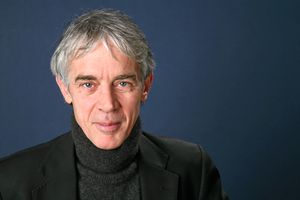Martin Vetterli
- Fields of study
- Signal processing
- Awards
- IEEE Jack S. Kilby Signal Processing Medal
Biography
One of the founding fathers of filter bank and wavelet theory, the signal processing algorithms and architectures developed by Martin Vetterli have helped advance the audio coding, image compression, and wireless technologies critical to our multimedia communications world. Vetterli’s Ph.D. thesis established a theory of filter banks and efficient implementations that made filter banks an essential signal processing tool and launched a new wave of applications. In this research he proposed multidimensional subband coding, which is now an integral component of the JPEG2000 image compression standard. His concept of perfect transmultiplexing now allows designers to perfectly modulate signals onto a single channel, enabling orthogonal frequency division multiplexing in WiFi systems. And his concept of nonseparable multidimensional filter banks are used in today’s high-dimensional image and video processing methods. Vetterli then went on to propose solutions for joint source-channel coding based on multiresolution concepts. This work has been critical to enabling video over the Internet. He also introduced multiresolution for broadcast television, which allows graceful degradation and backward compatibility between HDTV and standard television. His contributions to joint source-channel coding for video multicasting over the Internet accommodates multiple users with varying channels or access rates. Vetterli has also made groundbreaking contributions to sampling and quantization techniques for bridging the analog and digital worlds. He derived a new sampling theory for signals of finite rate innovation FRI related to compressed sensing, which provides improvements to oversampling methods for analog-to-digital conversion (ADC). This permits high bandwidth signals with low-dimensional representation to be sampled at radically lower bandwidth signal with a low-dimensional representation to be sampled at radically lower rates. Vetterli’s work on FRI has made compressed sensing one of the hottest topics in signal processing and has important implications for the design of new ADCs, cameras, radars, and medical imaging devices.
An IEEE Fellow, Vetterli is the president of and a professor in the School of Computer and Communications Sciences at Ecole Polytechnique Fédérale de Lausanne (EPFL), Lausanne, Switzerland.
